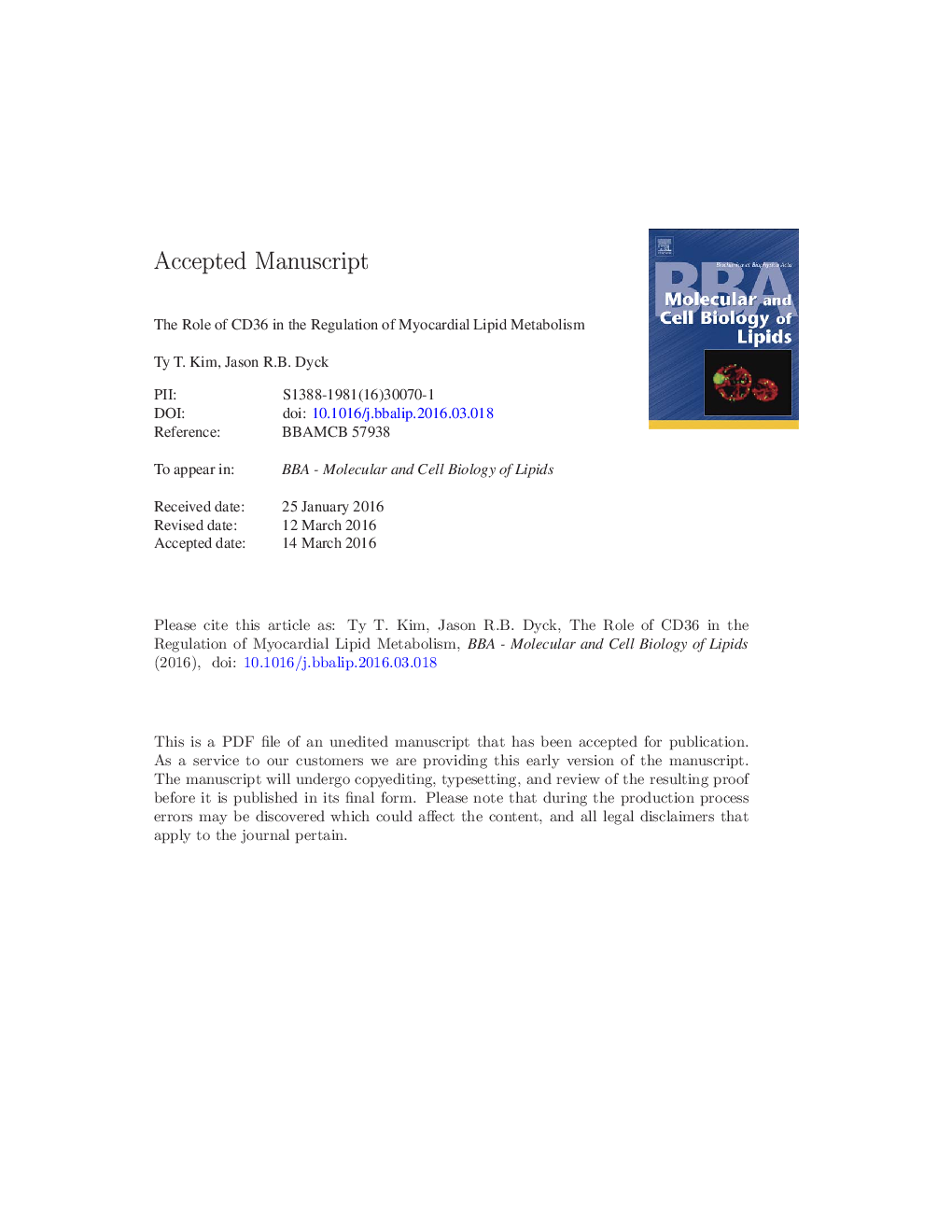| Article ID | Journal | Published Year | Pages | File Type |
|---|---|---|---|---|
| 1949028 | Biochimica et Biophysica Acta (BBA) - Molecular and Cell Biology of Lipids | 2016 | 36 Pages |
Abstract
Since the heart has one of the highest energy requirements of all organs in the body, it requires a constant and plentiful supply of fuel to function properly. Mitochondrial oxidation of lipids provides a major source of ATP for the heart, and the cellular processes that regulate lipid uptake and utilization are important contributors to maintaining proper myocardial energetic status. Although numerous proteins are coordinately regulated in order to ensure proper fatty acid utilization in the cardiomyocyte, a key first step in this process is the entry of fatty acids into the cell. An important protein involved in the transport of fatty acids into the cardiomyocyte is the plasma membrane-associated protein known as fatty acid translocase (FAT; also known as CD36). While multiple proteins are involved in facilitating fatty acid uptake in the heart, CD36 accounts for approximately 50-70% of the total fatty acid taken up in cardiomyocytes. As such, myocardial metabolism of fatty acids may depend upon proper CD36 function. Consistent with this, changes in CD36 levels/function have been implicated in the alteration of myocardial metabolism in the pathophysiology of certain cardiovascular diseases. As such, a better understanding of the role and function of CD36 in the heart may provide important insights for the development of new treatments for specific cardiovascular diseases. Herein, we review the role of CD36 in myocardial lipid metabolism in the healthy heart and describe how CD36-mediated alterations in lipid metabolism may contribute to cardiovascular disease. This article is part of a Special Issue entitled: Heart Lipid Metabolism edited by G.D. Lopaschuk.
Keywords
CD36FATPACSLAcyl-coenzyme A synthetasePIP3FABPLPLGLUTAMPKTCAPI3KAMPCPTAMP-activated protein kinaseROSAdenosine TriphosphateATPadenosine monophosphateAtgltricarboxylic acidfatty acid translocasecardiovascular diseasetriacylglycerolFatty acid uptakeforkhead Box OGlucose transporterCVDFoxOphosphatidylinositol-3-kinaseadipose triglyceride lipaseLipoprotein lipaseLipid metabolismFatty acid binding proteinFatty acid transport proteinprotein kinase BCarnitine palmitoyltransferaseReactive oxygen species
Related Topics
Life Sciences
Biochemistry, Genetics and Molecular Biology
Biochemistry
Authors
Ty T. Kim, Jason R.B. Dyck,
